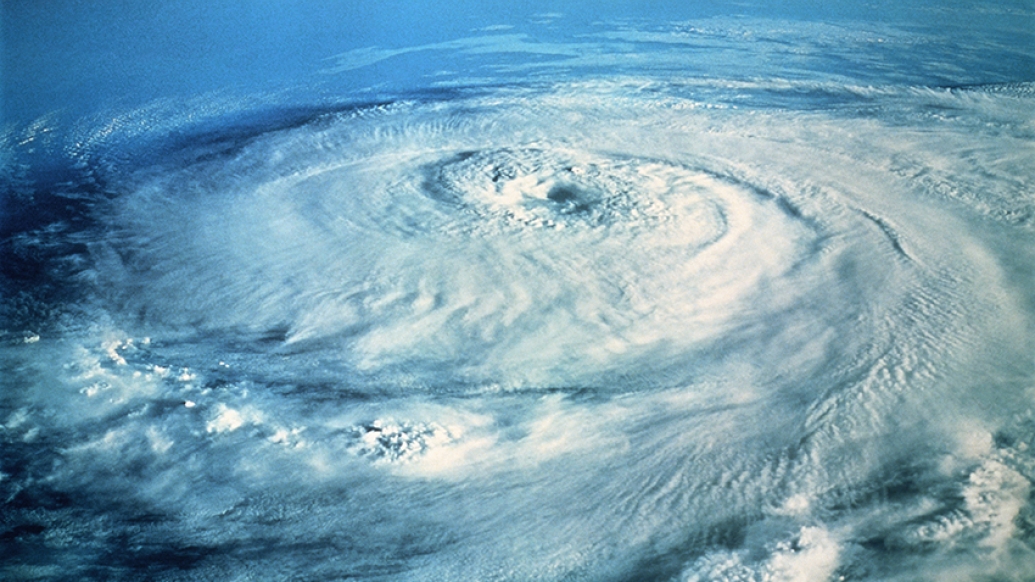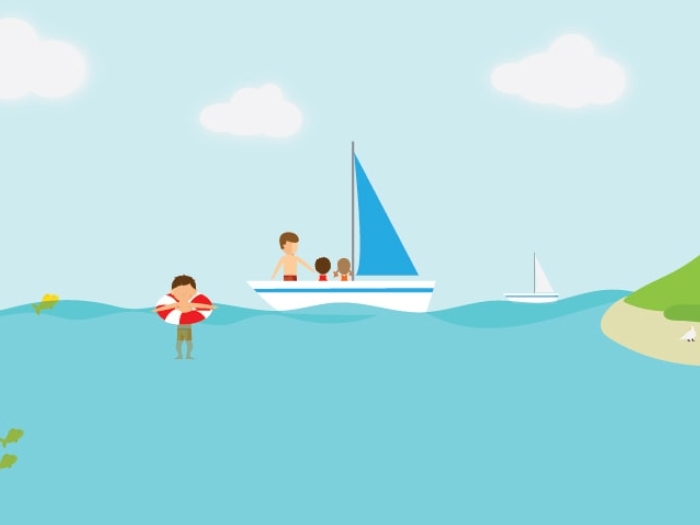Disasters happen. Follow these tips from an emergency medicine physician to help your family prepare and stay safe.
8:00 AM
Author |

As people prepare for the wild winds and heavy rain that Hurricane Dorian may bring, you may be wondering what to do if disaster strikes?
If scary images of bent-over trees and rampaging storm surges don't spur you to action, September is also National Preparedness Month — a good time to think about some easy preparedness steps you can take all year to keep your family safe.
Despite the best planning, accidents, injuries and medical emergencies are often unavoidable. Fortunately, thousands of emergency physicians are on duty 24 hours a day, seven days a week, 365 days a year to take care of you and your family when you need it most.
There are some common sense preparedness tools you can use to lower your risk of injury. By planning ahead, you can be prepared and keep you and your family safe when the unexpected occurs.
Here are some easy tips, along with a Natural Disasters Preparedness Plan printable checklist for you and your family to reference:
Have a plan
-
Involve each family member in the planning process. Make kids a part of the discussion and planning, and encourage them to think of it as preparing for a challenge.
-
Make sure each family member understands your family plan for each emergency situation, including where to meet in the event of a fire in the home or where the emergency shelter would be in case of a tornado or other severe weather event.
-
Have a plan in case family members are not home at the time of an emergency. This should include how you will get in contact with each other and having a safe meeting place such as a friend's or relative's home.
LISTEN UP: Add the new Michigan Medicine News Break to your Alexa-enabled device, or subscribe to our daily audio updates on iTunes, Google Play and Stitcher.
Make an emergency kit
-
Be sure to have enough food and water for you and every member of your family to last at least three days. In a large-scale disaster it may take days before relief supplies arrive.
-
Stock your kit with important items, such as extra medications you may need and a spare set of eyeglasses if you require them. And don't forget baby formula and diapers for small children.
-
Pack a radio and extra batteries. This may be your only source of information after a large-scale disaster.
-
If you have a cell phone, you will need a way to keep it charged. Solar chargers or portable battery packs may be a good option. Make sure they are charged and ready to go, but keep in mind, after a large-scale disaster cellular networks may not be functioning properly.
-
Remember your pets. Be sure to have food and water specifically for pets so you don't have to share your own supplies.
MORE FROM THE LAB: Subscribe to our weekly newsletter
Be sure your home is safe
-
Check your smoke detector batteries at least twice a year and even if you have smoke detectors wired into your home's electrical system, they still may take batteries. Be sure to also test your smoke detectors periodically.
-
Consider a carbon monoxide detector. Most homes contain appliances that may produce carbon monoxide if they are not functioning properly. A carbon monoxide detector can alert you to this invisible, odorless gas that can be deadly, sometimes without warning.
Medical preparedness
-
Keeping a week of medications on hand for emergencies can be very important, especially for people with conditions such as transplants, heart failure, or those that require careful adherence to a regular regimen.
-
Remember that medications do expire. Check any medications you may have previously kept in your disaster kit to ensure they haven't expired.
-
If you require oxygen remember that if power is disrupted devices like concentrators won't work once the batteries run out. Have a backup plan, such as extra batteries, or a portable generator.
-
Remember not to run generators indoors or where exhaust can accumulate and become a hazard. If possible, have a portable oxygen tank for emergencies until you are able to get to a location where power or more oxygen is available.
-
People who use nebulizers for breathing treatments should also keep an inhaler or alternate ways of administering their medications in the event that power remains unavailable for a prolonged period of time.
Battery backup plan
There are many critical and life sustaining at-home devices, such as ventilators, specialized IV pumps and cardiac assistive devices, that require power. While battery backups are available for these devices for short term use, it's important to have a plan to keep these critical devices operational.
Emergency shelters and local hospitals have generator backups that can provide power in emergencies for people with these devices. If you require such a device, your plan should include getting to such a shelter quickly in the event of a prolonged outage.
Where'd I put that list?
Have a physical backup for your health information, especially if you store it on your phone. Write down or print out your medications, allergies, medical conditions and other important health information. Keep an updated copy with your emergency kit so it's always ready if you need it.
It's also a good idea to keep older means of communication and navigation handy.
If you have one, a hand-held GPS (with extra batteries) may be more reliable than your cell phone. A paper map, in the event you need to travel a longer distance to a hospital or other shelter, may be a good idea to keep on hand as well. A portable radio can also provide important updates via local radio stations. Be sure to have extra batteries on hand.
With a little planning, your family can be prepared for whatever comes your way.
To help you get started, print out our Natural Disasters Preparedness Plan checklist, which includes all the topics listed above.

Explore a variety of health care news & stories by visiting the Health Lab home page for more articles.

Department of Communication at Michigan Medicine
Want top health & research news weekly? Sign up for Health Lab’s newsletters today!





